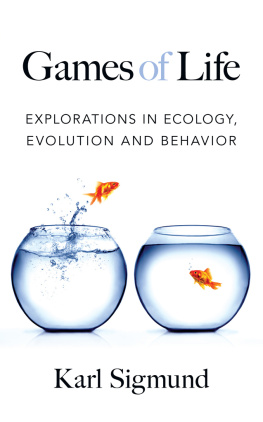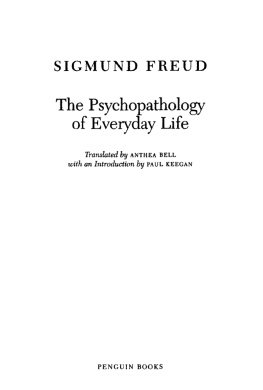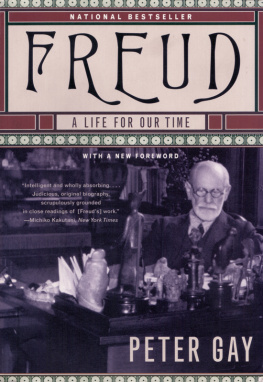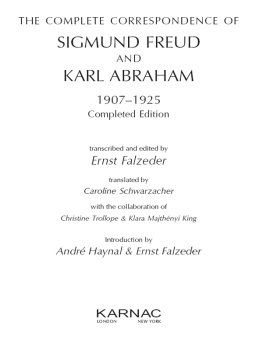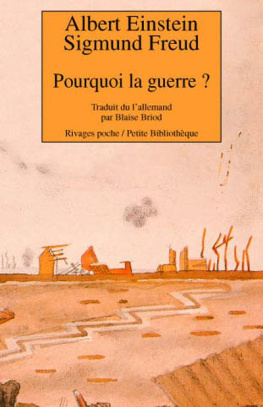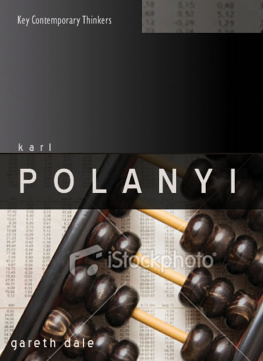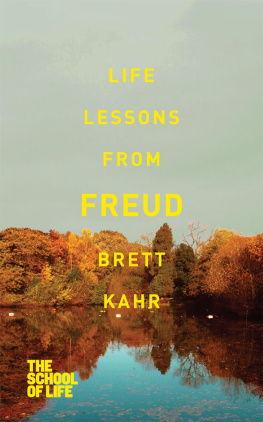Karl Sigmund - Games of Life
Here you can read online Karl Sigmund - Games of Life full text of the book (entire story) in english for free. Download pdf and epub, get meaning, cover and reviews about this ebook. year: 2017, publisher: Dover Publications, Inc., genre: Religion. Description of the work, (preface) as well as reviews are available. Best literature library LitArk.com created for fans of good reading and offers a wide selection of genres:
Romance novel
Science fiction
Adventure
Detective
Science
History
Home and family
Prose
Art
Politics
Computer
Non-fiction
Religion
Business
Children
Humor
Choose a favorite category and find really read worthwhile books. Enjoy immersion in the world of imagination, feel the emotions of the characters or learn something new for yourself, make an fascinating discovery.
- Book:Games of Life
- Author:
- Publisher:Dover Publications, Inc.
- Genre:
- Year:2017
- Rating:4 / 5
- Favourites:Add to favourites
- Your mark:
- 80
- 1
- 2
- 3
- 4
- 5
Games of Life: summary, description and annotation
We offer to read an annotation, description, summary or preface (depends on what the author of the book "Games of Life" wrote himself). If you haven't found the necessary information about the book — write in the comments, we will try to find it.
Karl Sigmund: author's other books
Who wrote Games of Life? Find out the surname, the name of the author of the book and a list of all author's works by series.
Games of Life — read online for free the complete book (whole text) full work
Below is the text of the book, divided by pages. System saving the place of the last page read, allows you to conveniently read the book "Games of Life" online for free, without having to search again every time where you left off. Put a bookmark, and you can go to the page where you finished reading at any time.
Font size:
Interval:
Bookmark:
Copyright
Copyright 1993, 2017 by Karl Sigmund
All rights reserved.
Bibliographical Note
This Dover edition, first published in 2017, is an updated republication of the work originally published by Oxford University Press in 1993 and reprinted by Penguin Books, London, in 1995. The author has written a new chapter, Morality Plays, for the Dover edition, as well as making several minor text changes.
Library of Congress Cataloging-in-Publication Data
Names: Sigmund, Karl, 1945 , author.
Title: Games of life : explorations in ecology, evolution and behavior / Karl Sigmund.
Description: Mineola, New York : Dover Publications, 2017. | An updated edition of the work originally published by Oxford University Press in 1993. With a new chapter.
Identifiers: LCCN 2017021498| ISBN 9780486812892 | ISBN 0486812898 Subjects: LCSH: Life (Biology)Simulation games. | Life (Biology)Computer simulation. | Game theory.
Classification: LCC QH313 .S585 2017 | DDC 570.1/13dc23
LC record available at https://lccn.loc.gov/2017021498
Manufactured in the United States by LSC Communications
81289801 2017
www.doverpublications.com
This book deals with questions ofliterallyvital importance, like sex and survival, but it does so in the spirit of a game. In no way is this a novel approach: many recent developments in evolutionary biology have a distinctively playful streak. I have tried to compile some of the highlights in the field, while shunning technicalities, formulae, long-windedness, and Latin names. The book aims primarily at potential or actual students (which includes that interested lay-person so dear to preface-writers). The reader should be ready for games of all kinds, from Cat and Mouse to Computer Tournaments, from Solitary Life to the Only Game in Town, from Hide and Seek to the Battle of the Sexes, from Poker to the Prisoners Dilemma. There will be lots of games of make believe; but you will not, I hope, find it a trivial pursuit. In fact, I cannot promise entertainment all the way; some arguments by R. A. Fisher or John von Neumann are as intricate as a series of chess moves by Steinitz or Capablanca. But I have tried to avoid all semblance of a method, and kept most of the scholarly routine strictly confined to the (voluminous) references at the end of the book. Ideally, I mean to whet your appetite rather than fill you up. If you wish to read the real thing, or to attend a course on it, or to dig deeper in any other way, I trust that you will find it easy to proceed. Key topics are listed at the start of each chapter, while endnotes provide references or amplify certain points in the text. Each endnote, cued in the text by an asterisk, is preceded by the page number and a brief quote from the sentence to which it refers.
We start with artificial life, and self-replicating machines. This is a topic for computer games like Life and other cellular automata. The next chapter is on pursuit games between predators and prey, and on chaotic motion and its role in ecology. This is followed by games of chance and statistical paradoxes arising through randomness in molecular evolution. Some bizarre double games played by chromosomes are treated in the chapter on population genetics. Next come some of the many riddles posed by sex; this is a chapter filled with feedback devices, lotteries, treadmills, and forfeits. The last two chapters apply game theory to animal behaviour. They deal with courtship, ownership, partnership, and brinkmanship, using poker games and computer tournaments.
I have worked and written on some of these questions, but cannot claim to be an expert on cyber-life, ecology, genetics, statistics, strange attractors, parasitology, or animal behaviour: for me, writing this book has also been a gamble. But I had help. It is a pleasure to acknowledge here the debt I owe to many colleagues and friends. Many of my colleagues at the University of Vienna helped me with suggestions and criticisms: I mention in particular Josef Hofbauer, Reinhard Brger, Immanuel Bomze, Rupert Riedl, Gnter Wagner (now at Yale), Peter Schuster (now at Jena), and Martin Nowak (now at Oxford). I have to thank also Jean-Pierre Aubin, John Maynard Smith, Robert May, John Casti, Christian Palmers, Peter Hammerstein, Franjo Weissing, Vincent Jansen, Christoph Krall, Andreas Novak, Minus van Baalen, Ilan Eshel, Ralph Hoekstra, Sergio Rinaldi, Sean Nee, Alan Grafen, and David Haig for discussions, comments, and preprints, and IIASAs librarian Eddy Loeser for his untiring assistance.
Vienna K.S.
March 1993
To be, to play... Do you know the difference all that well, Chevalier?
Arthur Schnitzler, The green cockatoo
No formula will give the game away. But I had better confess, right at the outset, that this is going to be a book on mathematics: more precisely, on the mathematics of evolutionary biology.
The links between mathematics and biology are closer than one might think. Gregor Mendel, for instance, the monk with the peas, was a student of mathematicsin my institute, incidentally, at the University of Vienna.* Mendel took many other courses, including some in biology: but biology was not his main subject. He flunked his exam in botany twice, and therefore failed to win a teachers diploma. Although his teaching earned him much praise, he never was appointed as more than substitute instructor. The son of a small tenant, he entered the Augustine monastery in Brnn (today, Brno in the Czech Republic) at the age of twenty-one. But, as he wrote with disarming candour, he chose to take his vows mainly so as to be able to study in spite of his poverty. Eventually, Mendel was elected abbot and had to spend the rest of his life struggling with Viennese ministriesone of those sad Austrian fates. He no longer had any time for peas, and was obliged to reduce his scientific activities to observing the weather. But at heart, Mendel was a mathematician. A young mathematician, as R. A. Fisher described him, whose statistical interest extended to physical and biological sciences. And since Fisher contributed more than anyone else to statistics as well as to population genetics, we may assume that he knew what he was talking about.
It is well-known that Mendel was way ahead of his time: his wonderfully ingenious article Versuche ber Pflanzen-Hybriden gathered dust for thirty-five years in the obscure proceedings Verhandlungen des naturforschenden Vereins in Brnn, until the new century rescued it from oblivion.
The garden where Mendel crossed his peas can still be visited. It is topped by the notorious Spielberg, a picturesque hill crowned by a fortress whose damp dungeons were dreaded throughout the Habsburg Empire. Today, Mendels monastery is an Institute of Mathematics of the Czech Academy of Science. A ceaseless stream of traffic passes by. Yet the garden remains: it has not been changed into a parking lot.
Asterisks signal that further notes and references will be found in the Endnotes.
In 1924, another gifted young man from Brnn came to study in Vienna: Kurt Gdel, the logician. By 1938, when he left for Princeton, he had shattered the foundations of mathematics. His incompleteness theorem proved that there are arithmetical truths which could,
Font size:
Interval:
Bookmark:
Similar books «Games of Life»
Look at similar books to Games of Life. We have selected literature similar in name and meaning in the hope of providing readers with more options to find new, interesting, not yet read works.
Discussion, reviews of the book Games of Life and just readers' own opinions. Leave your comments, write what you think about the work, its meaning or the main characters. Specify what exactly you liked and what you didn't like, and why you think so.

